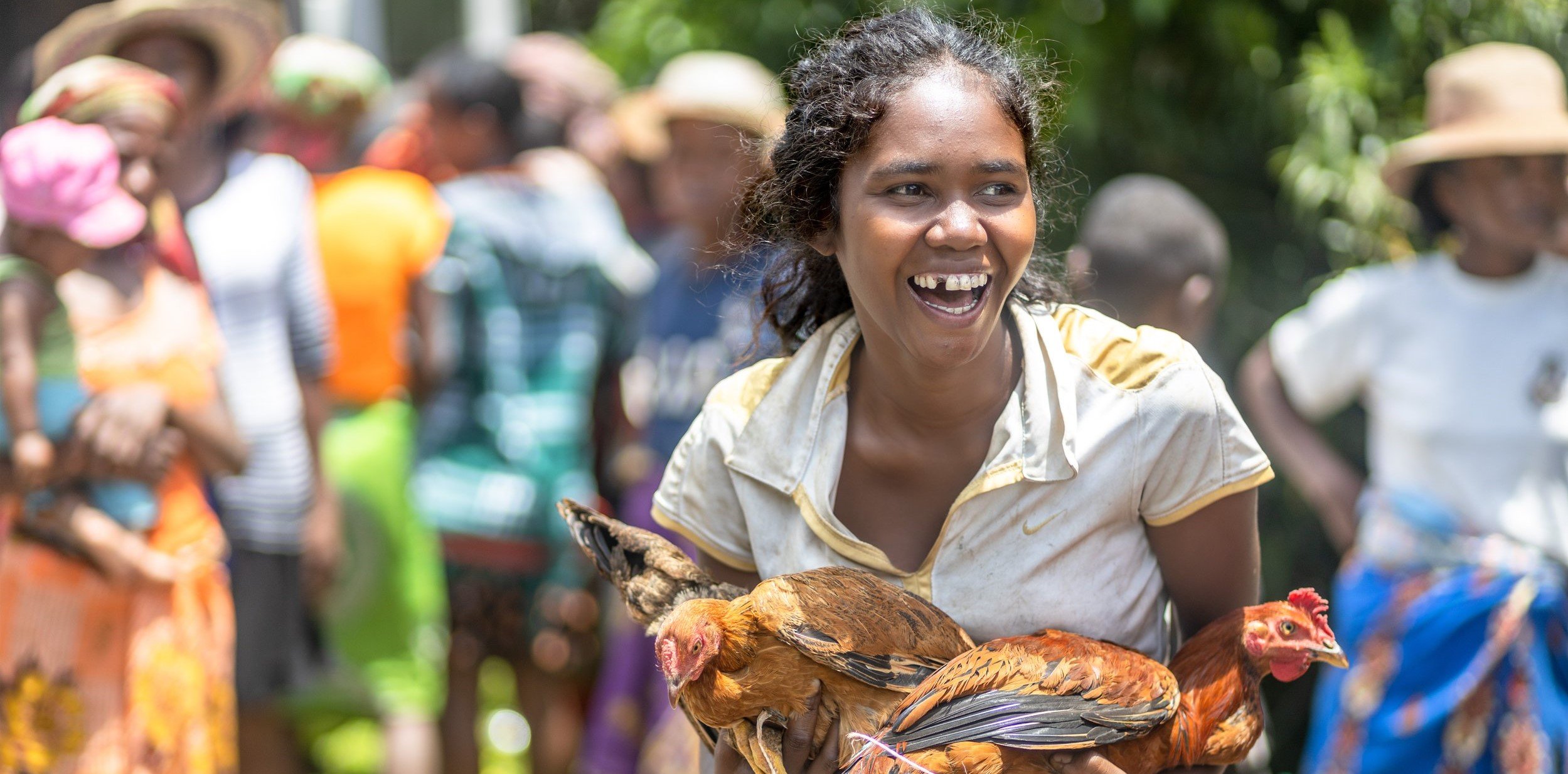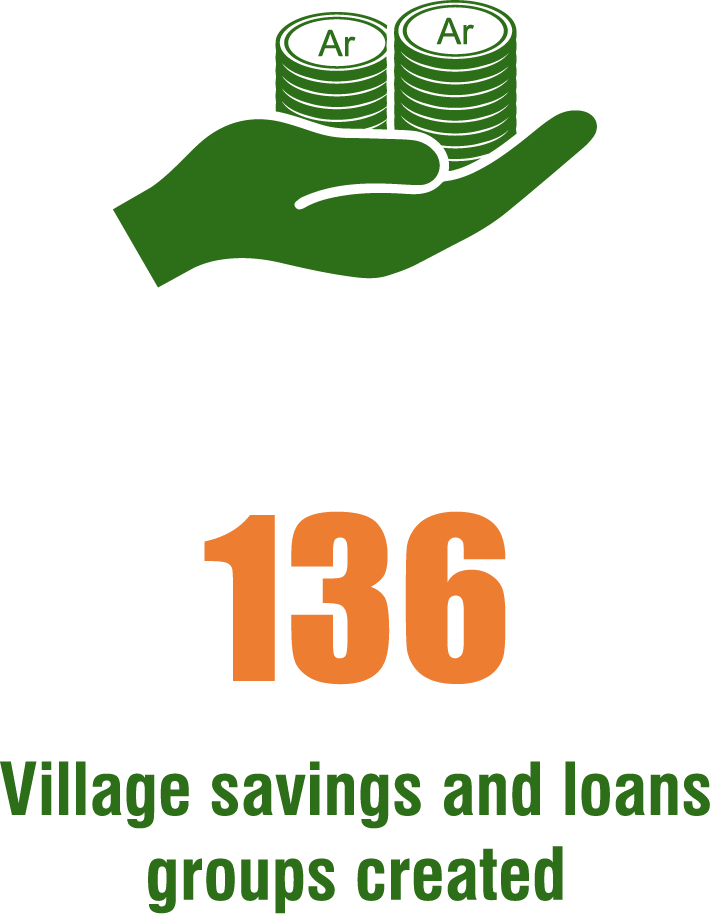
LIVELIHOODS
“We provide access to land and tenure, training, sourcing seeds, improving irrigation and crop management, and storing and selling harvests”
Madagascar, known as the "Red Island," is facing a crisis of topsoil loss. The island, once covered in rainforest, has been ravaged by slash-and-burn farming and commercial exploitation, leading to massive erosion and exposing the laterite soil all over the island. This has resulted in poor soil quality, lacking in essential nutrients like humus, magnesium, and phosphorous.
The unpredictable climate is also a major challenge for farmers. In 2017, Cyclone Enawo devastated the island with winds of up to 270 kilometres per hour, making it even more difficult for subsistence farmers who have limited access to seeds, fertilizers, or markets.
This, combined with a rapidly growing population, has led to a significant food security problem in Madagascar. In 2017, both national rice and maize production were below the 5-year average, and the main rice producing region had the lowest annual production ever recorded. This has led to widespread malnutrition and even starvation.
To address these issues, Feedback Madagascar is working to support agriculture at every stage. We provide access to land and tenure, training, sourcing seeds, improving irrigation and crop management, and storing and selling harvests. We also promote sustainability by diversifying crops and integrating the immediate needs of the harvest with the longer-term needs of people and the environment.
One of the key ways we are working to promote sustainability is through agroforestry. Agroforestry is the reverse of slash-and-burn farming, encouraging a virtuous circle of improved food security and business development through crop diversification, forest restoration, and sustainable stewardship. So far, they have helped more than 1,800 people adopt agroforestry using an area of over 200 hectares.
In addition, we have set up a seed bank in partnership with the Jo Walters Trust for households in 22 communities after they took part in training on land-use management and farming techniques. We have also developed yam production to promote food security and have seen more than 2,300 households in 53 communities adopt improved yam cultivation. This has led to a reduction in the length of the lean period of the year, which is the time when people are most at risk of malnutrition, of around 25%.
Fish farmers in Ambondro.
Poultry rearing
Village savings and loans group
Basket weaving
Essential oil distillery
Tree nursery
Vanillia sorting
HRH Princess Anne visits silk weaving production
Yams, key to the local economy












